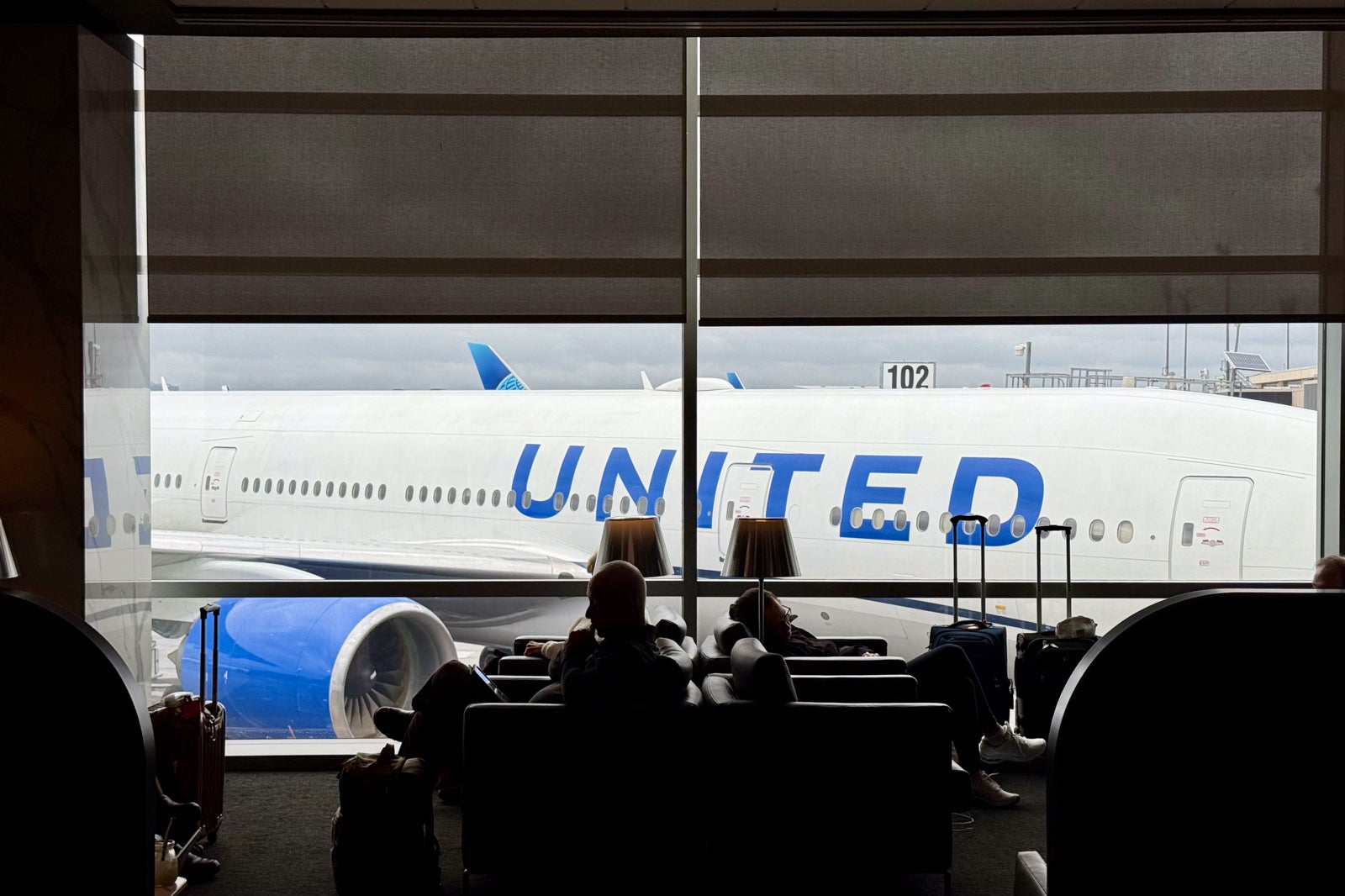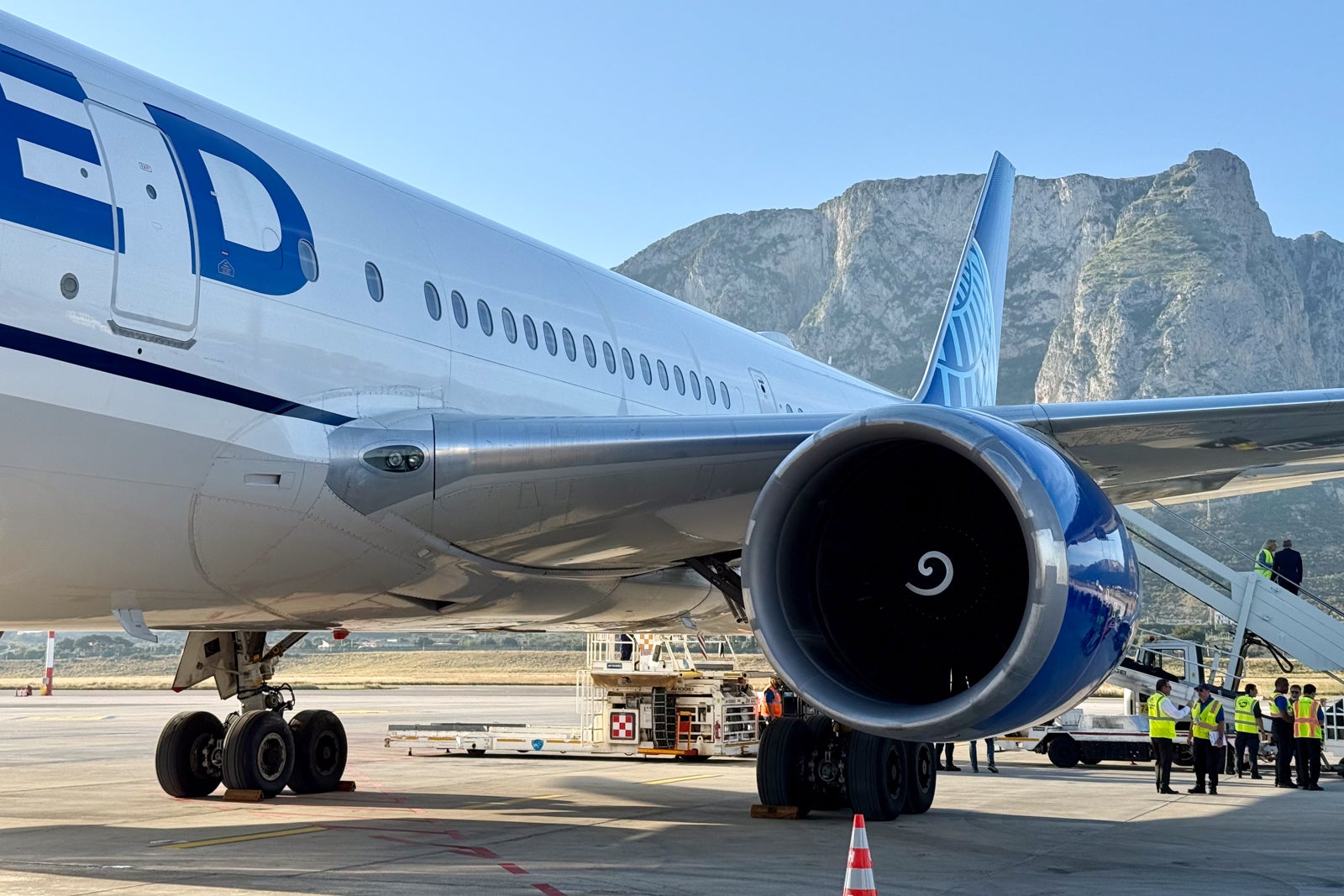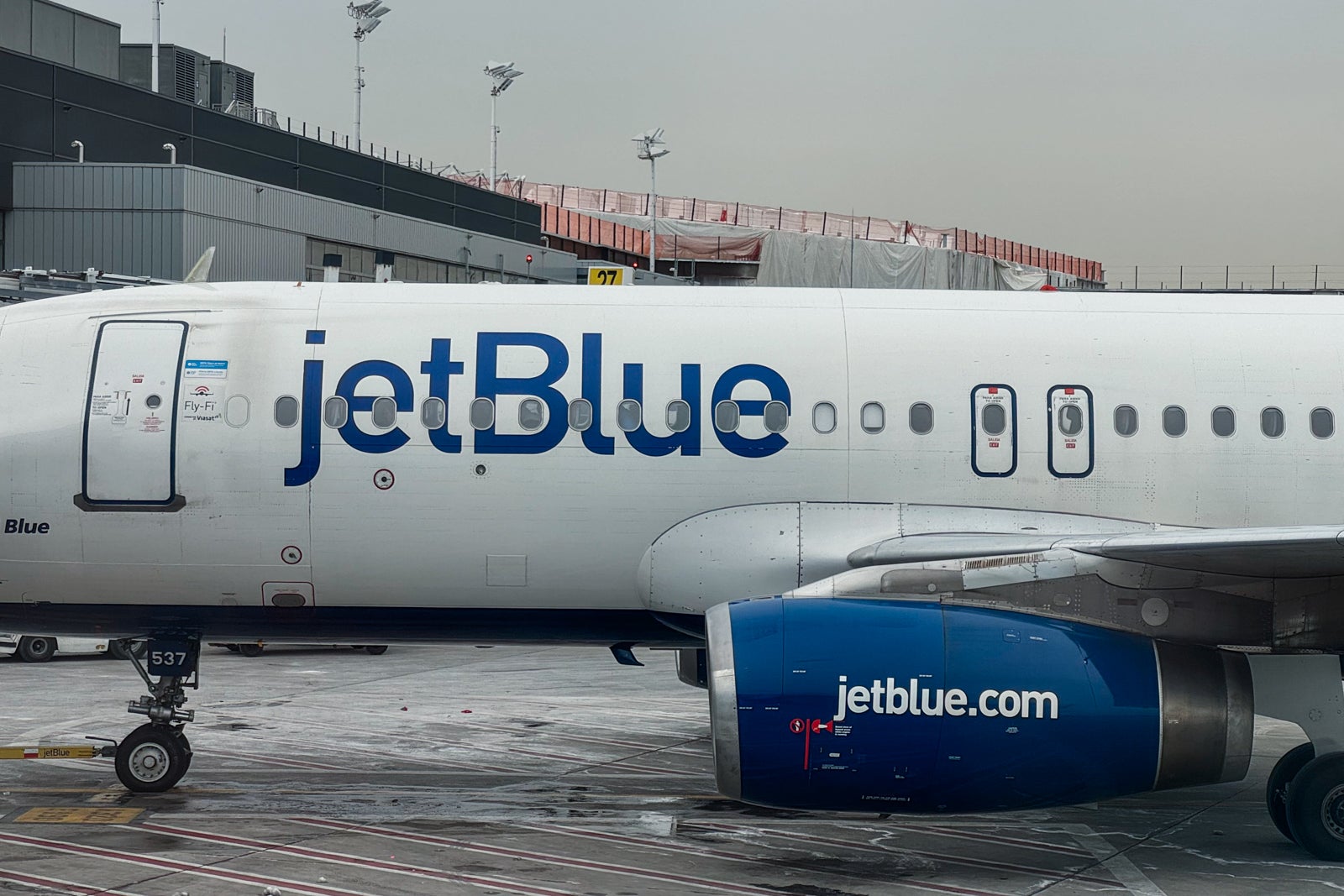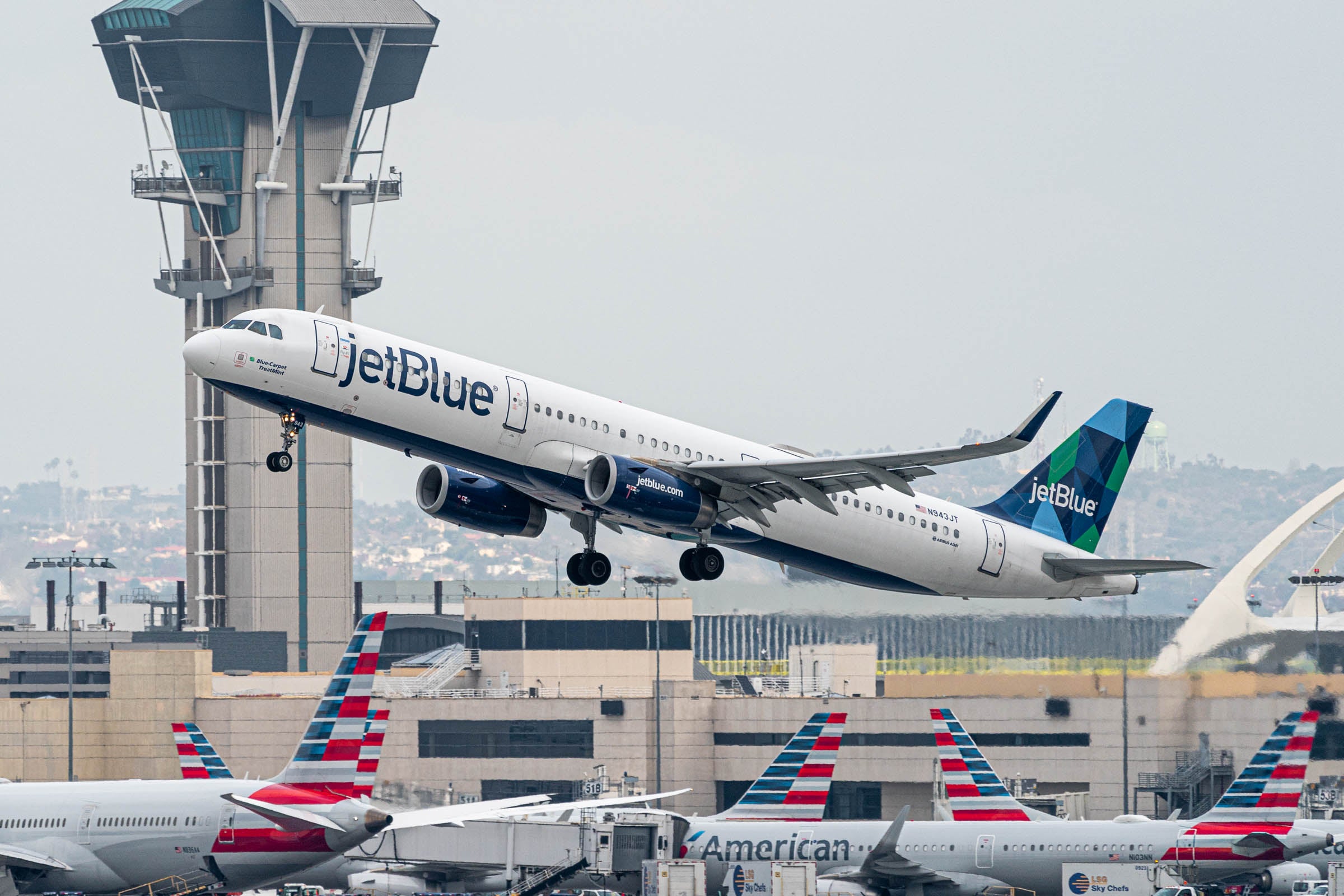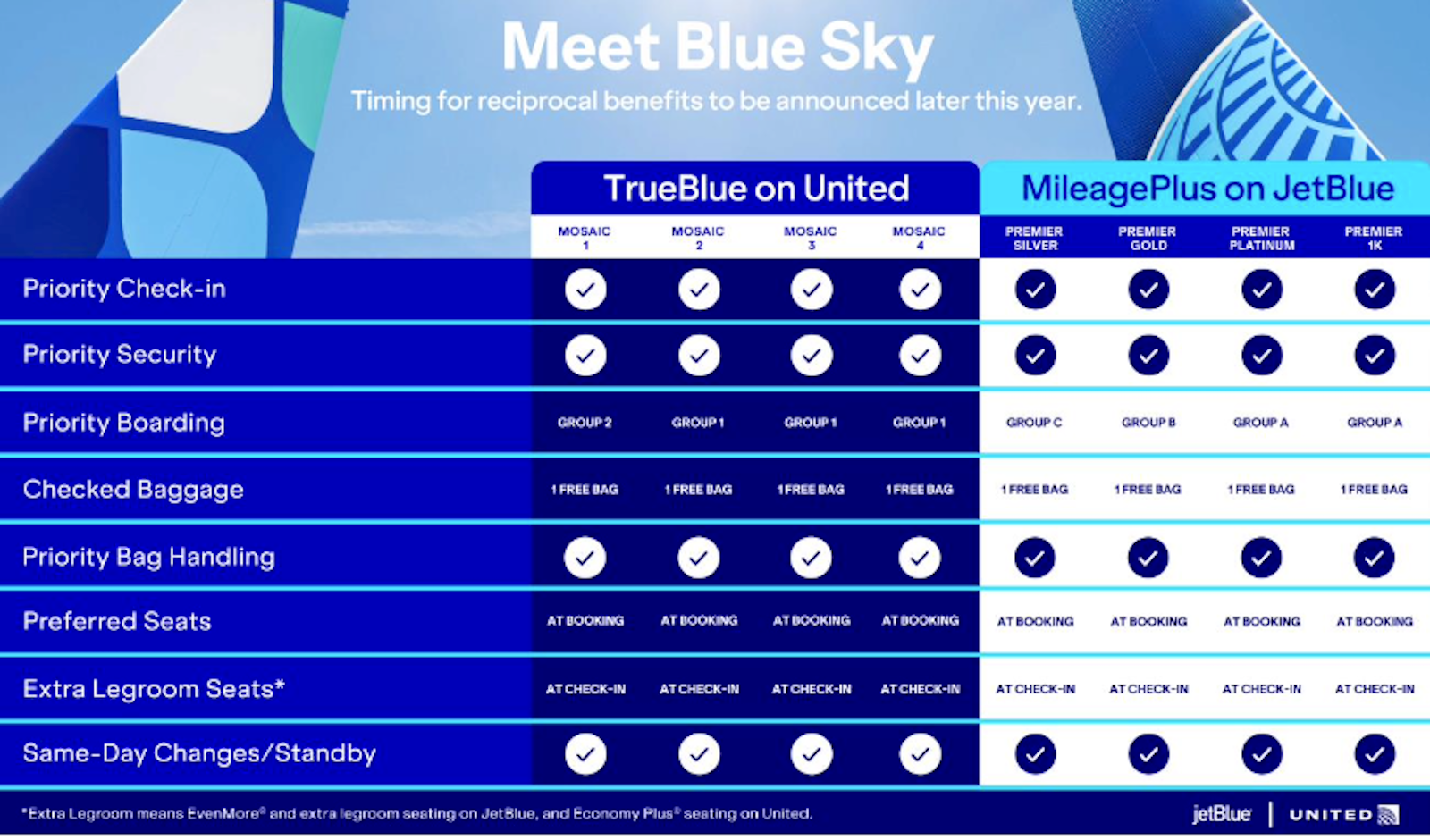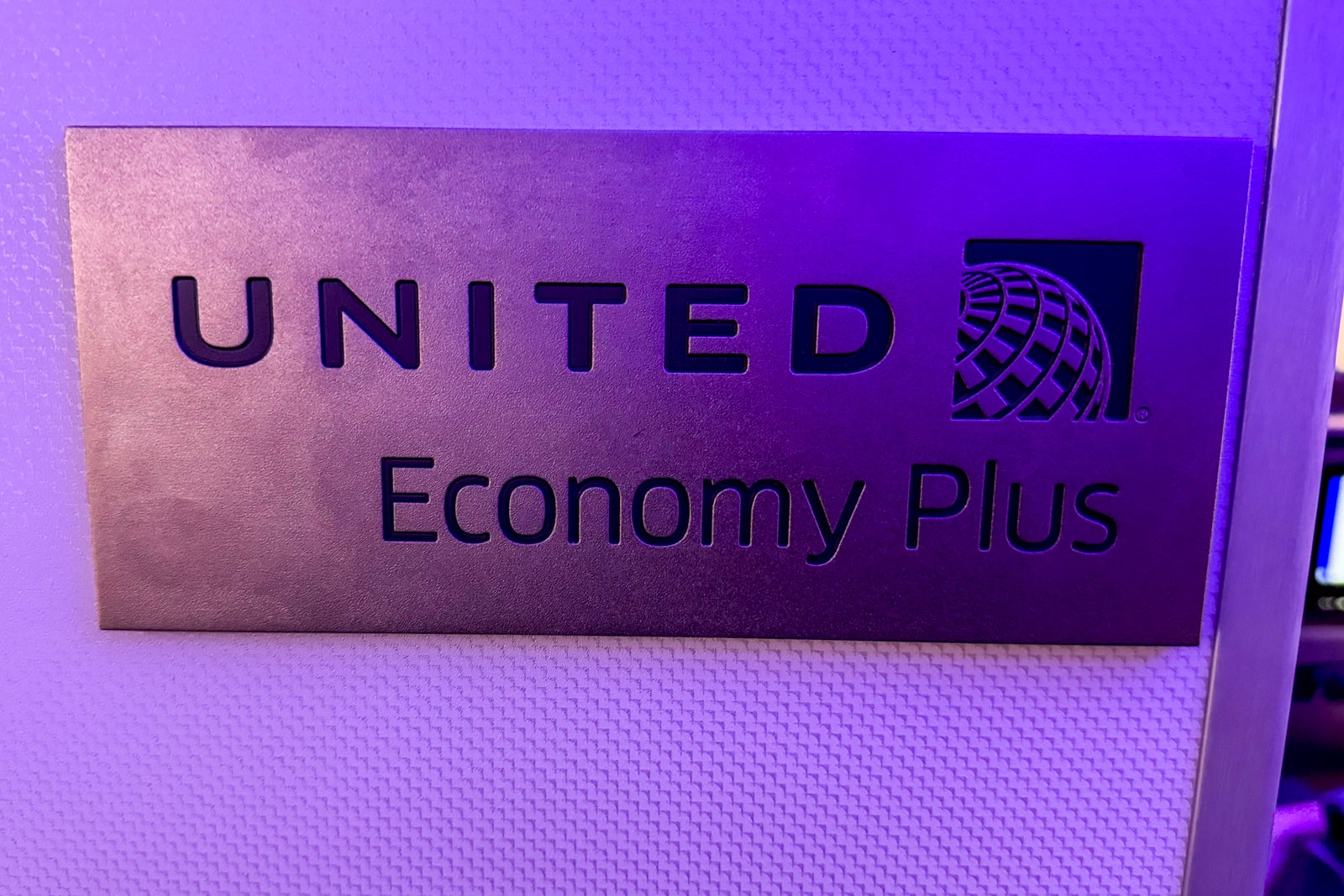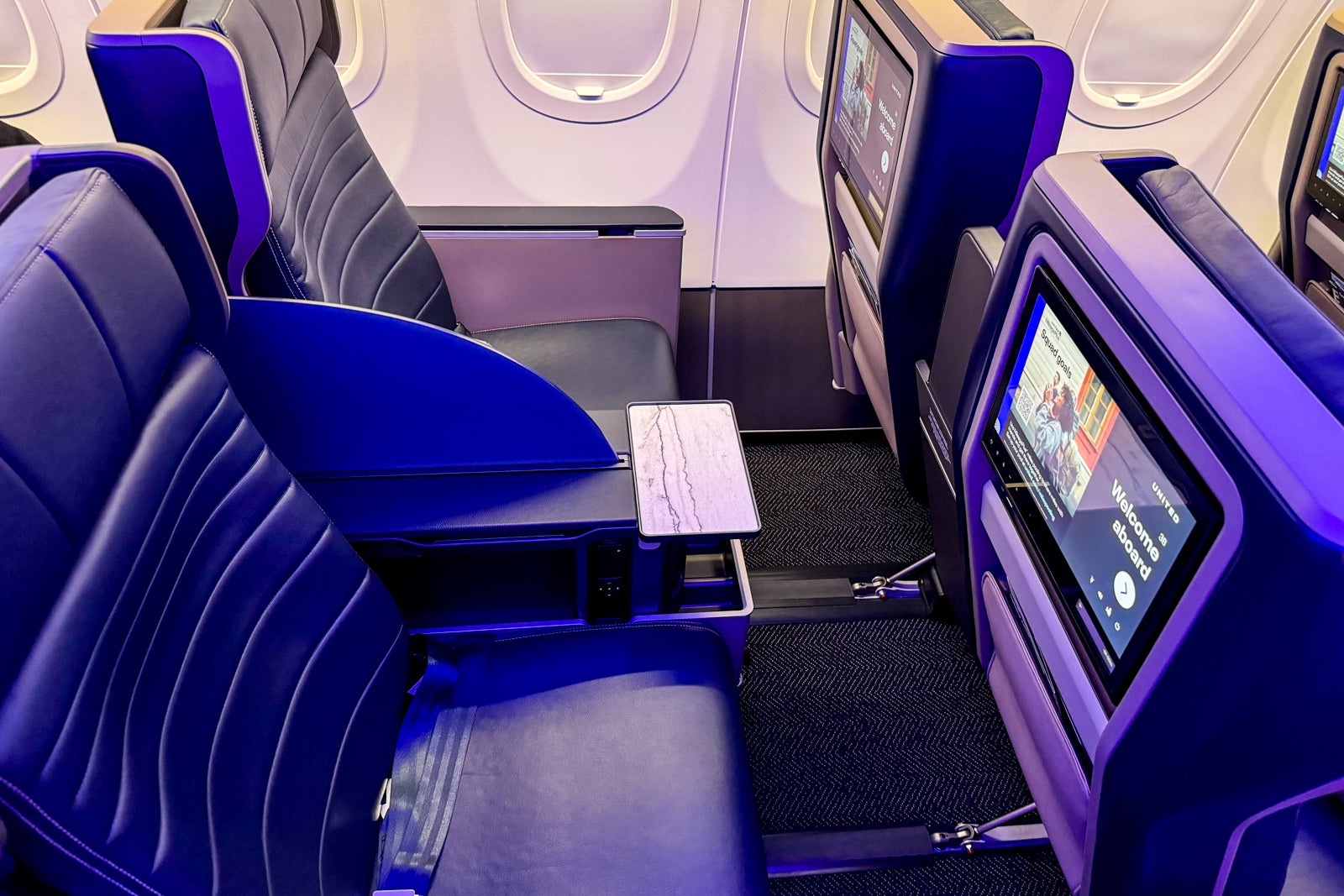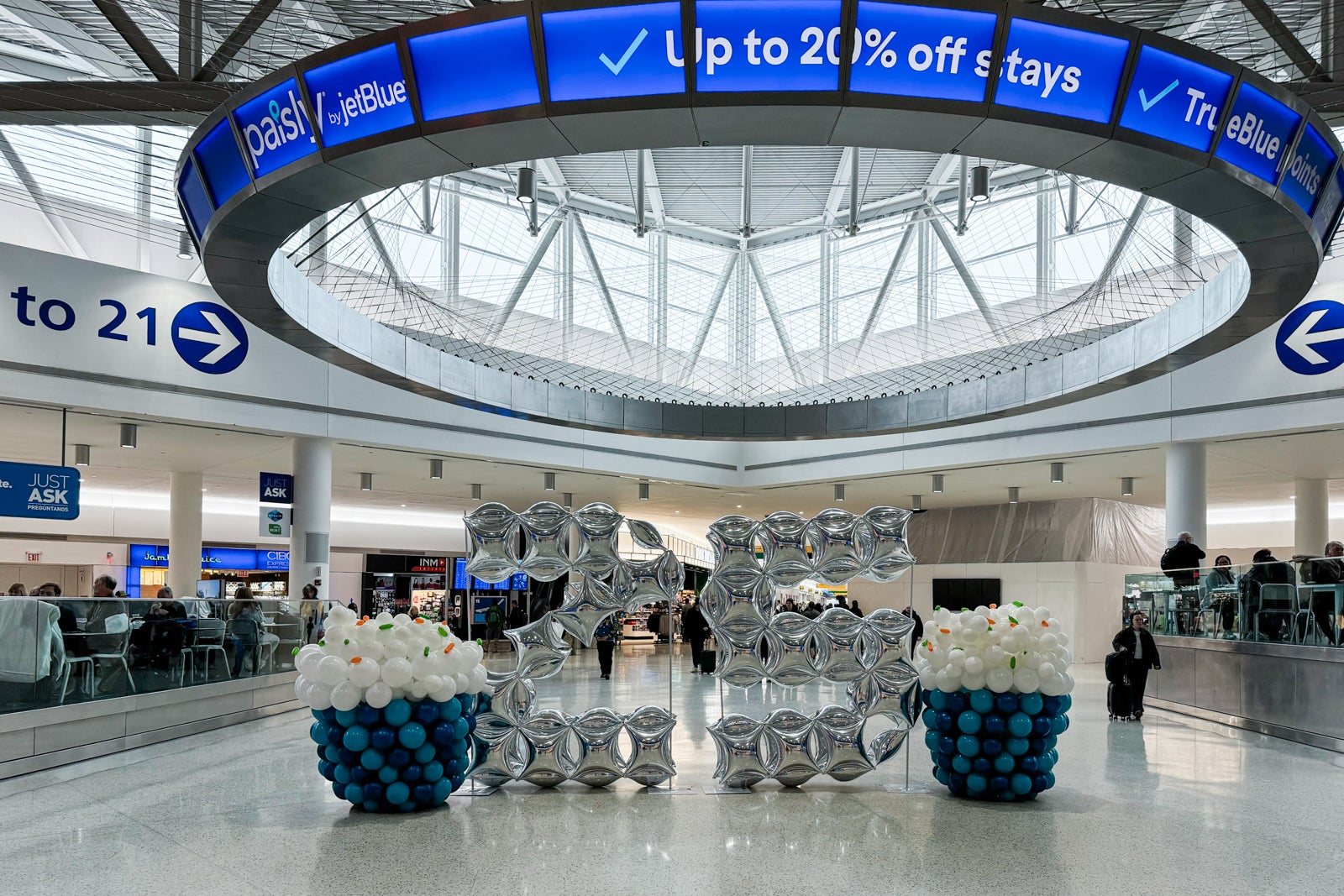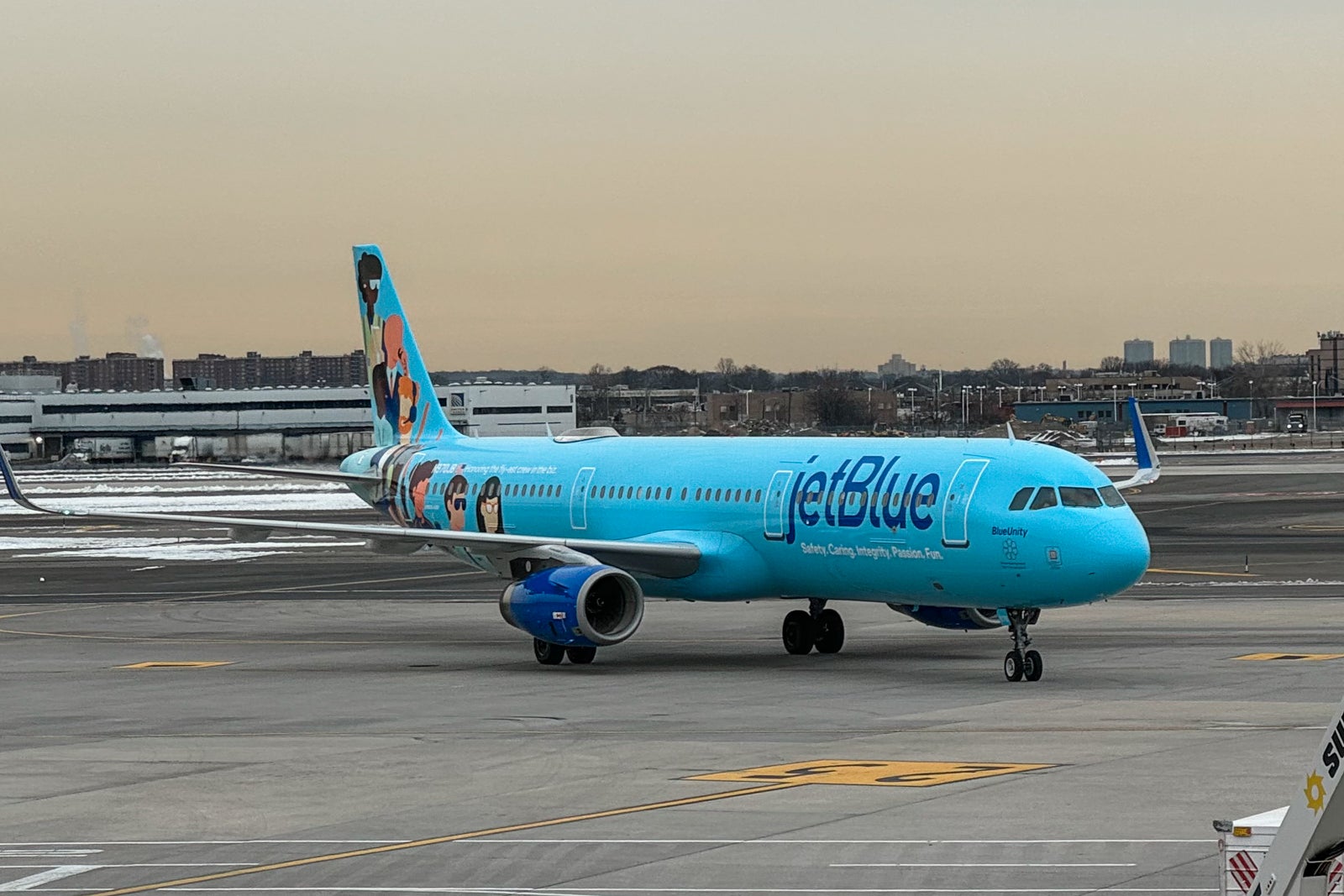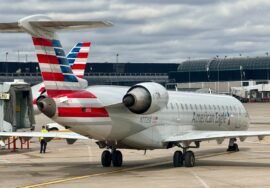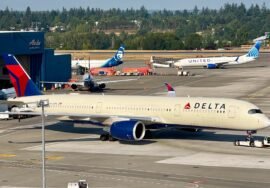
United and JetBlue: How the Blue Sky partnership will help travelers, and where there’s room to grow
United Airlines and JetBlue are teaming up in a new partnership called “Blue Sky,” and there’s plenty of good news to go around.
JetBlue has the partner it’s been looking for. United is headed back to John F. Kennedy International Airport (JFK). And MileagePlus and TrueBlue members just landed a ton of new ways to earn and redeem miles — and have a few more reasons to be excited.
Are there reasons to hold off on too much glee until we see how the airlines’ relationship grows in the coming months and years? Sure.
Here’s how I, and my TPG colleagues, are thinking about this new partnership.
Earning and redeeming seems like a win
In a moment, we’ll talk about the actual loyalty perks Blue Sky brings for United MileagePlus and JetBlue Trueblue members.
However, customers’ ability to earn and redeem miles with either program on either airline seems like a win.
What it means for JetBlue TrueBlue members
Once the alliance ramps up, TrueBlue members will be able to earn and redeem points on United-operated flights — including to parts of the country where JetBlue, a heavily East Coast-centric carrier, doesn’t fly.
This was precisely what JetBlue executives wanted in a partner: TrueBlue connectivity to places like Omaha and Boise. Linking up with United does just that.
It also gives JetBlue loyalists the chance to redeem points to fly to United’s expansive international destinations, from Sicily to Morocco to Mongolia — something Wall Street applauded.

Daily Newsletter
Reward your inbox with the TPG Daily newsletter
Join over 700,000 readers for breaking news, in-depth guides and exclusive deals from TPG’s experts
“Miles in JetBlue’s loyalty program become a more relevant currency with United’s network,” TD Cowen analyst Tom Fitzgerald wrote this week.
As of this month, TrueBlue points and MileagePlus miles were tied as the third most valuable loyalty currency of any U.S. airline, in TPG’s valuations, at around 1.35 cents apiece.
And United?
Meanwhile, MileagePlus members essentially get more flight options up and down the East Coast, especially to Florida, along with better links to the Caribbean.
Also: If you’re a United loyalist who’d occasionally like to fly out of JFK instead of Newark Liberty International Airport (EWR), you’ll be able to use your miles (or earn them) on JetBlue’s vast network of flights from its JFK base.
We should also point out that although United offers plenty of premium options with its long-haul Polaris and Premium Plus products, it’s hard to beat JetBlue’s Mint suites on transatlantic flights. Plus, its economy experience routinely ranks among the best in the industry.
X-factor
The biggest lingering question: How will the partner earnings and redemption rates through Blue Sky stack up? The airlines didn’t detail that in the initial announcement.
Northeast Alliance 2.0? Sort of
It’d be a fair knee-jerk reaction to say Blue Sky looks a little like the second coming of JetBlue’s former Northeast Alliance with American Airlines, which met its demise in federal court two years ago.
What’s similar?
Like the Northeast Alliance, JetBlue and its partner (now United) will be able to sell one another’s flights through their own websites and apps. However, Blue Sky will technically be a more limited interline agreement between United and JetBlue versus the more cooperative codeshare arrangement JetBlue had with American.
Perhaps more significant for the average TPG reader is the loyalty partnership.
Like what American AAdvantage and JetBlue frequent flyers enjoyed under the Northeast Alliance, TrueBlue and United MileagePlus elite members will get reciprocal loyalty perks when flying on the other carrier.
That means, if you’re a United Premier member, you’ll get treated as an elite status flyer on JetBlue flights. If you’re a JetBlue Mosaic flyer, you’ll get special treatment on United.
What’s different?
Compared to the Northeast Alliance, you’ll be able to book a wider range of Blue Sky partner flights to and from more cities; the Northeast Alliance concentrated more heavily on codeshare flights to and from New York City and Boston.
A win for MileagePlus members: They’ll be able to earn and redeem miles on JetBlue’s transatlantic flights, which AAdvantage members couldn’t do under the Northeast Alliance.
On the business side of things, United and JetBlue won’t coordinate on pricing and scheduling as JetBlue and American did. That was perhaps the top hang-up the federal judge cited when he struck down the Northeast Alliance two years ago.
That difference (and a new administration in Washington, D.C.) could mean less regulatory scrutiny.
“This one is much more straightforward,” United CEO Scott Kirby said Thursday on CNBC.
The perks are … nice
Let’s talk reciprocal loyalty perks for elite-status members.
They’re fine.
They’re a bit egalitarian: Aside from better boarding groups as you climb the status tier ladder, most of the perks are pretty static whether you’re a Mosaic 4 or a Mosaic 2 flying United … or a Premier Silver or a 1K flying JetBlue.
As you can see above, all elite members get priority check-in, security and bag handling, along with same-day change abilities and preferred seats at booking.
All Mosaics and Premiers will also be able to select complimentary extra legroom seats in EvenMore on JetBlue and Economy Plus on United.
You’ll also get extra legroom seats at check-in (24 hours before departure), no matter which level of elite status you hold.
I was a little surprised the airlines didn’t offer extra legroom seats at booking for higher-level elite members — a sentiment echoed by some frequent flyers I’ve spoken with.
But it’s still a solid perk.
What about lounges and first class upgrades?
Notably, the airlines have not yet detailed any plans for their more premium offerings, such as lounges or first class.
One potential explanation: There’s a big premium imbalance at the moment. While United has a wide range of clubs and high-end seats, JetBlue’s inventory is limited to its few dozen planes that are equipped with Mint, however impressive the product.
That said, things are changing. Later this year, JetBlue expects to open its first lounge. Also, all of its planes that don’t have Mint are getting domestic first-class seats.
So, we’ll be interested to see if the two airlines eventually expand Blue Sky to the more premium end of the spectrum.
A formidable duo in New York
Together, United and JetBlue should prove to be pretty formidable competitors in the New York City region, the nation’s biggest air travel market. United has its big Newark hub (where it says operations are improving after recent weeks’ travel troubles), and JetBlue has its Terminal 5 JFK operation.
There’s the loyalty component, which gives MileagePlus and TrueBlue members more incentive to fly out of JFK or EWR.
Plus, both airlines will grow on both sides of the Hudson River.
JetBlue will take over eight of United’s flight timings at Newark. And, more significantly, United will finally get back coveted access to JFK, where it’ll fly up to seven daily round trips via shared slots (tightly regulated takeoff and landing rights) handed over by JetBlue.
Of course, that’s a little further down the road. United won’t make its debut in JFK’s new Terminal 6 until 2027 at the earliest.
Bad news at American
Blue Sky can’t be welcome news at American, which had specifically hoped to become more competitive in the Northeast when it partnered up with JetBlue through the Northeast Alliance.
“We’re, I think, really happy with the positioning we have there,” American vice chair and chief strategy officer Steve Johnson said of New York, speaking in April.
But there’s a reason the Fort Worth carrier had explored a reunion with JetBlue earlier this year, before that fell apart.
Bottom line
The new Blue Sky partnership between United and JetBlue should offer vast new earning and redeeming options for travelers. It’ll also provide more flexibility for MileagePlus and TrueBlue members in the New York region who would like more flexibility to choose from JFK or EWR.
While we’ll be eager to see if the two airlines expand the reciprocal loyalty benefits over the coming months and years, it appears Blue Sky should offer travelers many of the same benefits that frequent JetBlue and American passengers enjoyed under the short-lived Northeast Alliance.
Related reading:

